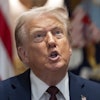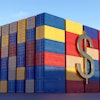BEIJING (AP) -- A Chinese official tried to calm unease about curbs on exports of rare earths used in clean energy products and superconductors, saying Thursday that sales will continue but must be limited to reduce damage to China's environment.
China produces nearly all the rare earths used in batteries for hybrid cars, mobile phones, superconductors, lightweight magnets and other high-tech products. Reports of a plan to reduce exports sparked concern about the impact on industry abroad.
Beijing will encourage sales of finished rare earths products but will limit exports of semi-finished goods, said Wang Caifeng, deputy director-general of the materials department of the Ministry of Industry and Information Technology.
Exports of raw ores already is banned, and said that will continue, Wang said at an industry conference.
Wang refused to confirm Chinese news reports that this year's exports will be cut to about 8 percent below 2008 levels and future exports will be capped at similar levels. She said a plan will be be issued later this year.
"China, as a responsible big country, will not go back and will not take the road of closing the door," Wang said.
But she said China has to limit output to protect its environment. She said production of one ton of rare earths produces 2,000 tons of mine tailings.
"China has made a big sacrifices for rare earths extraction," said Wang, who said she has spent her whole 30-year career overseeing the industry. "It has damaged our environmental resources."
Wang spoke at the Minor Metals & Rare Earths 2009 conference, cohosted by China Chamber of Commerce of Metals Minerals & Chemicals Importers & Exporters and Metal Pages Ltd., a London-based metals trading and information company.
China accounts for 95 percent of global production and about 60 percent of consumption of rare earths, which include such metals as dysprosium, terbium, thulium, lutetium and yttrium, according to the U.S. Geological Survey.
The United States supplied nearly all its rare earths needs from its own mines as recently as 1990, according to the USGS. But it says output plunged after the market was flooded with low-cost ore from China, which has lower labor costs and less-stringent environmental controls.
China wants to develop its industries to process rare earths and create products from them, Wang said.
China banned new wholly foreign-owned processing ventures in 2002 but some French and Japanese companies set up operations before that, Wang said. She said new foreign investors will be required to work through joint-ventures with Chinese partners.
Last year, China exported 10,000 tons of rare earths magnets worth $400 million and 34,600 tons of other rare earths products worth $500 million, according to Wang.
China used 70,000 tons of rare earths in 2008 out of reported total global consumption of 130,000 tons, Wang said. She said she believed global consumption was higher than indicated by the official statistics.
China's demand for rare earths has surged as manufacturers shifted production of mobile phones, computers and other products to Chinese factories.
The United States and European Union have objected to similar Chinese controls on exports of other industrial materials. They filed a World Trade Organization complaint in June accusing Beijing of improperly favoring its industries by limiting exports of nine materials including bauxite and coke in which it is a major supplier.
Associated Press researcher Bonnie Cao contributed to this article.


















